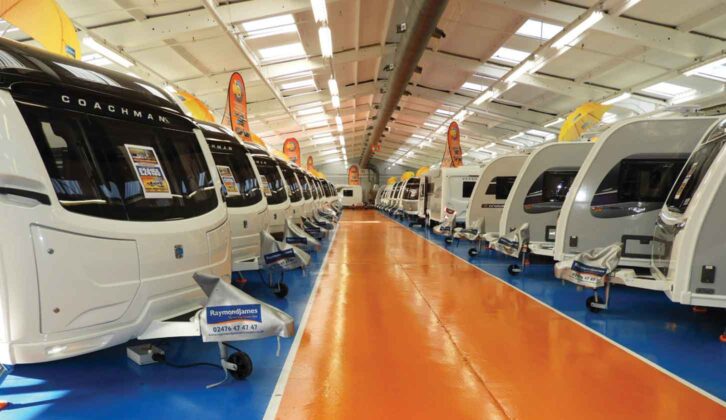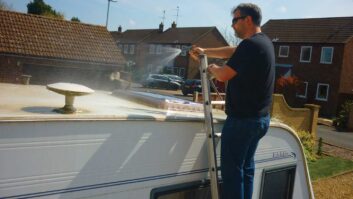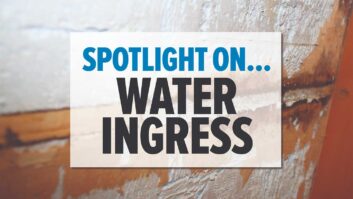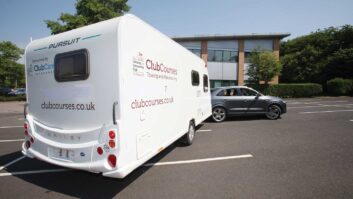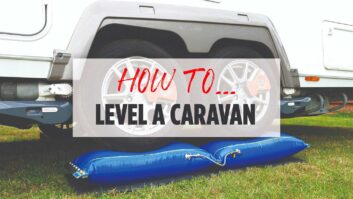The caravanning lifestyle offers one of the best investment returns around: not necessarily in terms of cash, but you’ll definitely profit from more freedom, greater pleasure – and priceless memories. But this is still a major investment, whether you’re a first-time caravan buyer or you have a tourer to part-exchange for a newer model. So choosing carefully when you’re financing a caravan purchase could save you a small fortune.
The options include using savings, a personal loan, personal contract purchase (PCP), hire purchase (HP), personal contract hire (PCH), or a dealer/broker finance package. The key to getting the best caravan finance deal is understanding all of those different ways to pay.
For starters, if you’re buying a caravan and have enough cash sitting in the bank to purchase it outright, that will almost certainly be the cheapest way to buy, so let’s begin there.
Alternatively, if you’re looking for a new tourer, our guide to the best caravans is the ideal place to start.
Financing a caravan: the different ways to pay
Paying in cash
With most new caravans costing north of £20,000, cash purchases typically occur when a buyer receives a substantial boost in their financial situation, such as an inheritance.
However, cash sales might also be funded by a purchaser borrowing money against the equity in their property, or using a tax-free lump sum taken from their pension fund, once they’ve reached 55 years of age.
Whatever the source of the money might be, paying for your caravan in one hit means that you won’t be charged interest on the purchase, making this the cheapest option
over the long run.
There was a time when cash was king for large purchases, although that seemed to end when vendors discovered that they could also generate significant revenue from arranging finance deals for their customers.
So if you’re in the fortunate position of being able to pay cash, do bear in mind that you still need to make that payment securely. It’s not recommended to rock up at your dealership with £25k in crisp new £50 notes! Always pay by bank transfer or banker’s draft.
Caravan finance
The term ‘caravan finance’ basically covers all of the ways in which you can purchase a van if you don’t have sufficient financial resources to pay for it in one go.
There are various avenues to explore, and your dealership might have several options for you to consider.
First, note that most, if not all, will require some form of deposit. This will typically be a substantial initial payment of 10% or 20% of the value of the caravan, perhaps £5000 or more, depending on the price of the tourer.
Of course, if you are part-exchanging your current van, its value could form your deposit. In this case, it will obviously be important to achieve the maximum possible residual value for the tourer you are trading in.
Unless you have an excellent, long-standing relationship with your caravan dealer, always seek two or three valuations, just so you know that you’re getting a fair price.
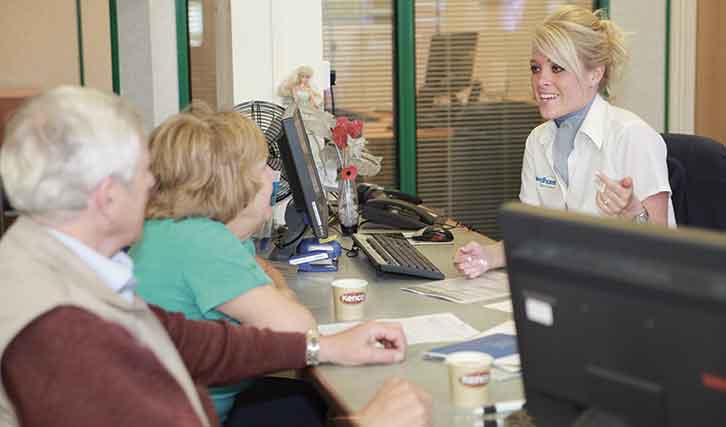
If you’re thinking of buying a used caravan in good condition with one of the more popular caravan layouts, you’ll find they’re in high demand right now, so at least start your negotiations by aiming high, knowing that you’ll still be happy if you agree on a slightly lower price.
In addition, bear in mind that the best deal you can achieve is going to be a combination of the part-exchange value, the price of the new van, the interest rate on any loan, plus any extras the dealership might offer you. (Nobody said this was going to be simple!)
Some finance packages will have lower monthly payments, but a larger deposit and a chunky final (aka balloon) payment. If a lower monthly cost puts your preferred van within reach, it might be worth spending a bit more over the entire period of the loan, if that allows you to enjoy the touring lifestyle and make precious memories at the best caravan parks, in the van of your choice. Only you can decide.
If you’re buying privately, you won’t have access to a financial package from a dealer, so a bank loan might be your best option. These are the main finance schemes…
Personal contract purchase
After payment of the deposit, PCPs often involve the lowest monthly instalments, putting a higher-quality tourer within reach of many more customers. However, this way of financing your purchase includes a significant final (balloon) payment, after which you would own the tourer.
The alternatives to paying this are to hand back the van, or start another agreement. In essence, unless you make that final payment, you never actually own the caravan.
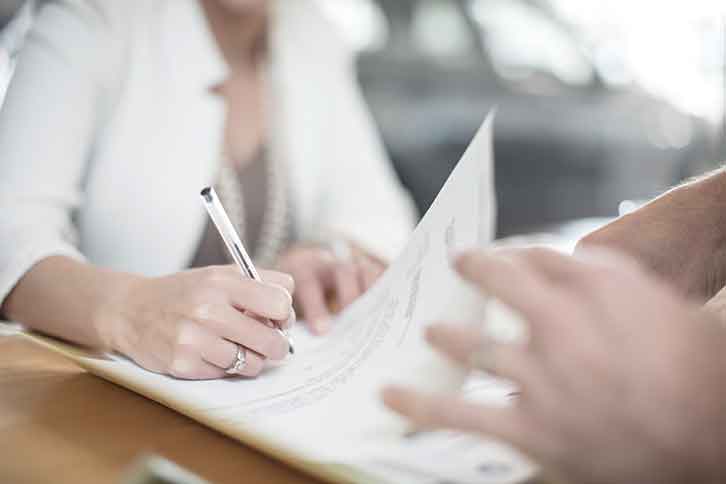
Overall, the lower monthly payments mean you are shrinking the loan more slowly than, say, an HP agreement, so you naturally end up paying more in interest over the term.
In short, this is an expensive way to ‘own’ a caravan, but it does put more luxury caravans within reach of many more people.
Hire purchase
When taking out an HP agreement, you pay an initial deposit followed by monthly sums. These include the outstanding balance, plus interest, split into equal amounts. At the end of the agreement, you typically pay a nominal ‘option to purchase’ fee, at which point, the finance company will transfer the ownership rights to you. HP monthly payments are usually higher than other forms of finance.
Personal contract hire
PCH is, in effect, a way of leasing a caravan, rather than buying it. You’ll pay a deposit and a monthly instalment for the duration of the lease, after which you hand the caravan back. The monthly payments are usually lower than other finance agreements, but you never own the van or build any equity in it.
Secured loan/second mortgage
Here, a lender loans you a fixed sum and you pay it back, with interest, over an agreed time. The lender might be nothing to do with the leisure vehicle industry, and could be a bank, building society or loans company. You don’t pay a deposit, and you’ll own the caravan as soon as you’ve paid for it. Most financial institutions offer personal loans, so it’s worth comparing APRs (see below).
The loan will be secured against your home in the same way as a mortgage. These are sometimes called a ‘second-charge mortgage’ because they sit behind your main mortgage and often allow you to borrow larger sums of money, and pay back over a longer period.
However, if you default on your loan, your home is at risk, so make sure you can afford your repayments. Before taking out a secured loan, always obtain advice from a qualified mortgage advisor or broker.
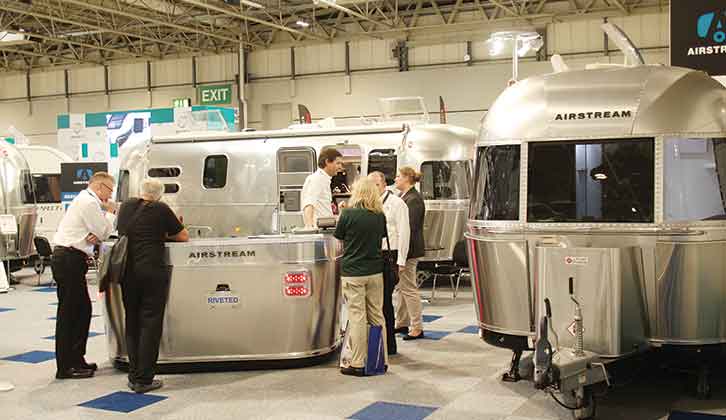
Equity drawdown
If you have a substantial amount of equity in your home, some lenders allow you to draw down on this, freeing up money to make large purchases, for example, home improvements, or buying a caravan or motorhome.
Your monthly mortgage payments will be recalculated to repay this extra ‘loan’.
Conditional sale
With a conditional sale, any debt is secured against the caravan, until the total is repaid. You’ll start by paying a deposit – typically 10% to 20% of the total cost – followed by payments at a fixed interest rate over an agreed repayment term. Once all payments have been made, you’ll own the caravan.
Everything you need to know about financing a caravan
What is the APR?
The Annual Percentage Rate (APR) is a standardised way of expressing the total cost of a financing deal, so that you can compare all of the options like-for-like.
All lenders have to tell you their APR before you sign any credit agreement, and you’re guaranteed that an 8.0% APR loan will always be cheaper than a 9.9% APR deal.
APR factors in additional costs, such as fixed sign-up or exit fees, but it doesn’t allow for flexible costs, such as payment protection or fees for late payment.
Pay your deposit with a credit card
Section 75 of the Consumer Credit Act offers protection to buyers if they pay by credit card for purchases between £100 and £30,000, even if only the deposit is paid on the card. If the purchase doesn’t turn up or is faulty, the credit card provider shares the liability with the seller, and you’re in a stronger position to obtain a refund.
IMPORTANT NOTE: There are two things to bear in mind. If you pay through a third-party payment system, such as Paypal, Section 75 protection is removed.
Likewise, some buyers have lost the protection when purchases have been made by a second cardholder, such as a spouse. Apparently, in this instance, it can be seen as a third-party purchase. That said, if the cardholder is seen as a beneficiary of the purchase, you should still be covered.
Yes, this is a minefield, but it’s generally seen as a sensible option for the primary cardholder to pay a deposit of over £100 directly to the vendor, thereby granting the entire purchase Section 75 protection.
Always ensure it’s clearly stated on the invoice that the deposit is for the caravan, and not any supplementary accessories you might also have purchased.
By paying off your credit card bill in full each month, you won’t pay any interest.
What if I default on my payments?
If you find yourself in the position of being unable to make payments on time, you should contact your finance company as soon as possible to plan a way forward. That might be a loan payment holiday, or an arrangement where you make lower payments over a longer period. No finance company wants to have the hassle and cost of a defaulted agreement, or to repossess the vehicle, so you might be able to negotiate a solution that is mutually beneficial. The worst thing you can do is ignore the situation.
For advice and information, contact your nearest Citizens Advice, where you’ll find a whole section on Debt and Money.
Budgeting for your purchase
Whatever you’re buying, from trainers to a tablet, from a TV to a tourer, there’s always a slightly better option for just a few quid more. It’s tempting to take that next step, but it’s much wiser to decide on your budget and stick to it.
In addition, it’s important to bear in mind various other unavoidable costs that you’ll face with kitting out your caravan, which you should factor into your budget calculations:
- Insurance: Typically, you could expect to pay anything from £200 to £1200 per year, depending on the van’s value, where and how it’s kept, and your insurance record.
- Tow car: You may need to upgrade your vehicle.
- Storage: when it comes to storing a caravan, you could park for free on your own drive, while Gold or Platinum-rated CaSSOA storage could cost from £300 to £600 per year, depending where you live.
- Annual servicing: You can expect to pay upwards of £250 for a comprehensive annual service.
- Consumables: Chemicals and cleaning agents.
- Gas: A 13kg Calor gas bottle could cost around £80.
- Leisure battery: A quality 110Ah battery for a caravan with a motor mover will cost £100 to £200, while lithium leisure batteries cost more than twice that.
- Fuel: Expect to spend at least 50% more on fuel for your car, when towing a caravan.
- Security devices: Alarms, trackers and so on add to the cost of your caravan purchase, although they’ll save you some money on your insurance premium each year. Caravan wheel locks and hitch locks are often a compulsory van insurance requirement.
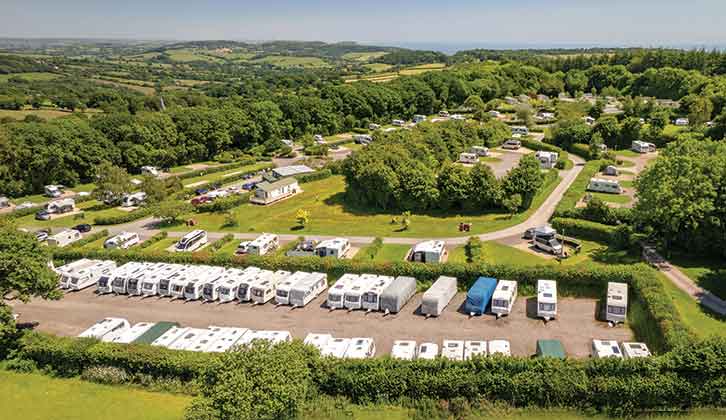
How much deposit?
As we find ourselves in the most unsettled financial times the UK has experienced for decades, it seems sensible to minimise the amount you pay as a deposit.
This is in case something unexpected happens and you find yourself having to withdraw from the deal.
In addition, as caravan delivery times have increased, sometimes to over a year, you might want the option to change your mind without losing a large deposit. Besides, that money is better off in your bank account while you await delivery.
Pay at least £100 deposit on your credit card, to ensure that you are covered by the Section 75 Consumer Credit Act protection – but don’t be tempted to pay too much.
Caravan costs versus regular holidays
In 2022, I took the family on a four-centre holiday, using Airbnb for accommodation. We picked pleasant, but modest, homes in tourist hotspots – but with the (high) cleaning costs and other random charges included, each three-night stop cost over £800.
Personally, I did find that a little bit steep, and it really brought home to me the fact that our caravanning holidays are absolute bargains.
Although caravan pitch fees have risen significantly over recent years, I still can’t think of a more cost-effective way to enjoy a brilliant family holiday, especially if you use your van regularly throughout the year.
Credit ratings
Your credit rating, which is based on your credit history, can have a significant effect on the APR charged, and therefore on how much the loan will cost you in total.
If you’ve always made loan, credit card and mortgage payments on time and in full, your credit rating should be Good or Excellent.
This makes you a low credit risk, so you may well be able to secure a better APR on your proposed finance deal.
However, if you’ve regularly missed payments, defaulted on loans, been declared bankrupt, never had credit, or even had too many credit checks for loans, your credit rating may be Poor, making you a higher risk. To offset this, you might find finance companies charging you a higher APR.
This article is based on information available in April/May 2023 and is intended as a general overview of common caravan financing questions and issues. References to specific products are for illustration only and not intended as recommendation.
With your caravan financing sorted, it’s time to start thinking about caravan breakdown cover– we take a look at the options.
If you’ve enjoyed reading this article, why not get the latest news, reviews and features delivered direct to your door or inbox every month. Take advantage of our brilliant Practical Caravan magazine SUBSCRIBERS’ OFFER and SIGN UP TO OUR NEWSLETTER for regular weekly updates on all things caravan related.
